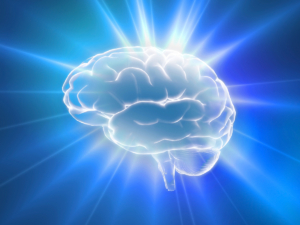Neuroplasticity: A New Hope in Recovery
When dealing with a mental illness, it is not uncommon to feel like you will always be this way: that you will always be anxious in crowds, socially awkward, gloomy, or depressed. We’re commonly told that the brain is a fixed structure, set into place once a person reaches full development, so if you are ‘born this way,’ to quote Lady Gaga, there’s no hope for change…or is there? Although the brain was once thought to be unchangeable and unmalleable, neuroplasticity has been challenging many former preconceptions.
Neuroplasticity is a term used to describe how the brain changes its structure through learning and actions. This process can occur by forming new connections between neurons or even altering already existing ones. The brain can also create new neurons through a process known as neurogenesis. Far from being static, we are learning that the brain is a very adaptive organ, capable of change.
Recognizing our brains can change, neuroplasticity gives new hope to healing from mental illnesses. For example, a person suffering from anxiety may engage in avoidant behaviours, strengthening pathways that reinforce their anxiety even more in the future. Instead, by facing a feared situation (carefully and in small doses), an anxious person can work to lessen the triggers and manage their stress.
The risk of developing severe mental health challenges varies based on factors like genetics and our relationships. Although such factors can make some more susceptible, it does not make recovery impossible. Learning to change negative thinking patterns is difficult as they have been strongly reinforced with time, but it is possible with hard work and perseverance, especially with the help of a mental health professional.
Cognitive distortions are common in people living with mental illnesses. These are patterns of irrational thoughts that can lead to viewing reality in a negatively biased way. But negative thinking can be unlearned. Cognitive Behavioural Therapy (CBT) is a kind of talk therapy focused on reinforcing and building better neural pathways to help reduce these distortions by replacing them with more beneficial ones. Neuroplasticity can therefore be a comfort for patients trying to change their thought patterns. Knowing you hold the power to change physical pathways in your brain and override those holding you back can be very motivating and hopeful. You can be the leader of your destination, so to speak, the captain of your ship.
In a world where many things are out of our control, we want to focus on what we can do. Our thoughts and behaviours are within our control, even when it can feel like the complete opposite. When engaging in behaviours like negative self-talk, for example, we are reinforcing this thought pattern for the future. When we become aware of our power to recognize this pattern, intentionally breaking it and overriding it with positive thoughts, we can work towards building a brighter and more empowered future. Are you ready to engage in your journey?
–Julianna De Pascale
From Share&Care Spring 2023
Visit amiquebec.org/sources for references
Sign up for our emails to stay in touch
Please also follow us on:



